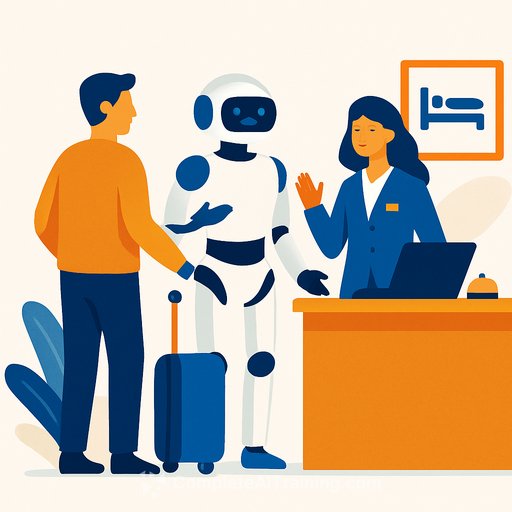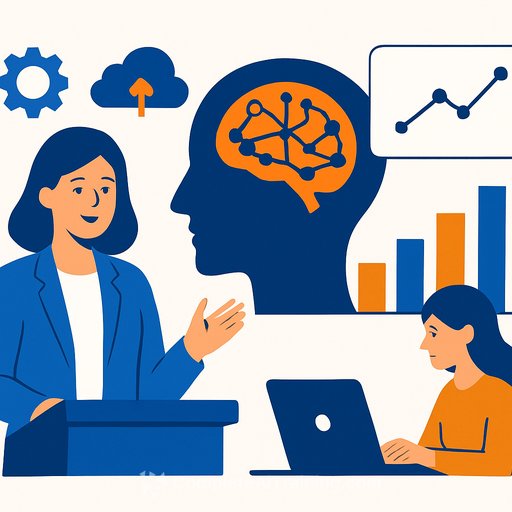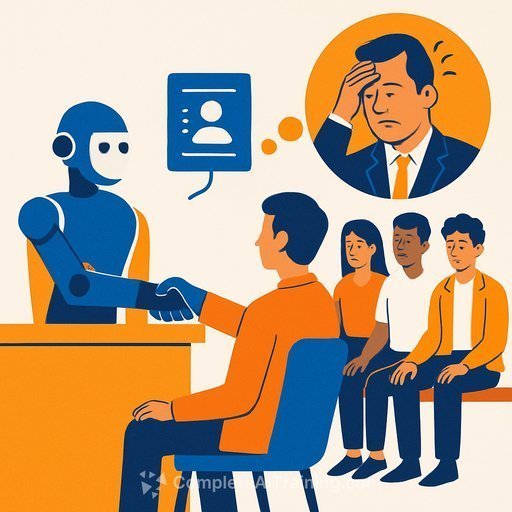Psychological Insights into AI in Hospitality
Artificial Intelligence (AI) is changing hospitality, but the main challenge isn’t just about technology—it’s about people. How guests and employees feel about AI often matters more than what the technology actually does. This article looks at the psychological factors that affect AI acceptance in hospitality and offers practical advice for leaders to make sure AI supports, rather than replaces, the human touch.
AI and Human Psychology
AI is increasingly common in hospitality, from robots at reception desks to AI-driven personalization and contactless services. It helps create smoother operations and more tailored guest experiences. AI tools handle everything from demand forecasting to analyzing guest feedback and managing employees.
Beyond improving guest satisfaction, AI can also reduce employee stress by automating repetitive tasks. This frees staff to focus on the relational side of hospitality, which remains essential.
Psychological Barriers to AI Adoption in Hospitality
Despite AI’s capabilities, many guests and staff feel uneasy. They question whether AI truly understands their needs or jobs. Employees may see AI as a threat to their expertise or career. Guests may feel uncomfortable when AI handles sensitive situations, like complaints or facial recognition without clear consent.
Acceptance depends less on AI’s technical skill and more on how people feel about its use. The key tension is between efficiency and empathy, automation and autonomy. People judge AI both by what it does and how it makes them feel. Recognizing these feelings helps increase acceptance.
Four Key Areas for Leaders to Address
- Lack of Empathy
Many fear AI reduces them to “numbers” and lacks emotional sensitivity. Technology can feel impersonal and rigid.
What to do:
- Use AI interfaces that communicate naturally, with empathetic language and context.
- Include human contact points so guests can easily connect with staff when emotional support is needed.
- Train employees to personalize interactions where AI falls short, showing AI supports—not replaces—the human element. - Responsibility
AI is seen as lacking goals, which affects how people react to AI mistakes. Brands suffer less reputational damage from AI errors, but users quickly abandon AI tools if they can’t correct or influence outcomes.
What to do:
- Be transparent about how AI suggestions are made.
- Allow guests and employees to override or adjust AI recommendations.
- Make clear that AI advises, while final decisions and responsibility remain with humans. - Control
AI may limit perceived choices by personalizing offers, which can feel restrictive. Constant surveillance can add to discomfort.
What to do:
- Present AI suggestions as options, not mandates.
- Clearly communicate what data is collected and why.
- Involve staff in designing AI outputs so they feel empowered rather than threatened. - Disclosure
People are more willing to share sensitive info with AI in low-emotion contexts but prefer humans in emotional situations.
What to do:
- Use AI for functional tasks like bookings or dietary info.
- Reserve human interaction for emotional or conflict situations.
- Assure guests their information is secure and give them control over what they share.
Using AI to Empower, Not Control
AI can boost hospitality operations and guest satisfaction, but its success depends on how guests and staff perceive it. Fairness, empathy, and control are crucial to building trust and encouraging use.
The future isn’t about more AI, but using it wisely. AI that complements human judgment and empowers people is more likely to be accepted. Technology can improve service delivery but can’t replace the human relationships at hospitality’s core.
Leaders should focus on blending technology with humanity, addressing psychological concerns to build trust and deliver better, more personalized experiences. The real potential of AI lies in supporting people to be more human, not in replacing them.
Your membership also unlocks:





